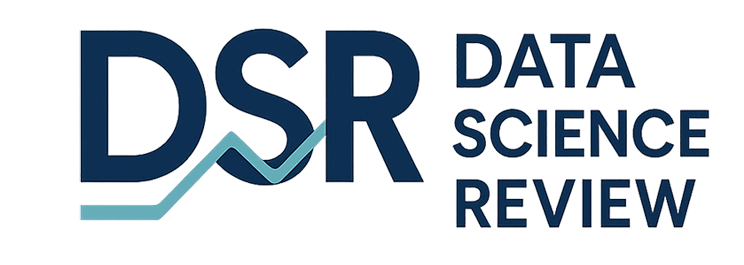The data science field is constantly changing. Employers are demanding that data scientists know more and can do more. For that to happen, though, you'll need the right skillsets.
Unless we use certain skills, though, we forget them, which causes us to scramble for the next technical interview. This article will help you learn to keep your career current through maintenance learning.

Most people are busier than ever. Ask someone you know if they even have fifteen minutes to spare for anything other than their jobs, and they'll tell you they are swamped. The takeaway is that these people don't have time to breathe, let alone self-train.
Finding the Time
A typical day for most people is they drag themselves out of bed to get ready for work. Then, they trek in with a long commute to the office. While companies are allowing people to work from home due to the pandemic, this option comes with a price. Many people are working longer hours, even though they get to work from home.

After you are able to escape from your manager's grip, you get ready for dinner. Then, you kick back with a few beers or glasses of wine and lose yourself for hours watching television. The cycle repeats the next day.
Try this exercise. Rate the shows that you watch on a regular basis on a rating of 1-5, with 5 being the shows you love and one being shows you could do easily miss. Now, what if instead of watching the shows that rate as 3 on your scale, you spent some time online with a training website?
Let your family know that for one-half hour, you are going to your office and you are going to participate in a training module. If you can't do one-half hour, try fifteen minutes. The key is to be consistent. You'll be amazed at how much knowledge you gain in just fifteen-minute chunks.
Can You Find More Time?
Do you get to work early? If you do that means you have time to spare. Companies will never fault you for using part of your time to self-train. In fact, many companies require a certain amount of training as part of performance reviews.

If your company gives you a hard time about using your time for training (not likely), then go into a coffee shop for the extra time that you arrive early. If you are one hour early every work day, you can spare fifteen minutes in a coffee shop.
I realize the pandemic has put complicated our lives. It may be difficult to find a coffee shop that will let you stick around for any length of time. However, the pandemic won't last forever, even if it seems like it might. If coffee shops are not an option, then take a later bus or train, or leave later.
The point is we tend to overdramatize our current work situations. Yes, we are all busy, but everyone can find fifteen minutes a day to work on training. I don't care who you are. It's all about forming the right habits.
For the record, yes I do self-train at least fifteen minutes a day. During down periods in my business, I increase the number of minutes substantially.
What to Learn
As mentioned, the data science field changes often. It can be overwhelming to keep up. However, one great way to stay on top of the skills you need is to peruse job listings. These listings are the front lines of skills that companies are requiring.

If a job listing suggests someone having a background in statistics, add that to your learning list. If they are looking for cloud computing, it's time to start learning about the cloud. Perhaps even consider working towards getting certified in the skills you're learning.
As a general rule, you'll want to focus on the following skills (not exhaustive):
- SQL Programming
- Data Science Pipelines
- Python or R (or both)
- Statistics & Probability (basics only)
- Data Cleansing and Munging
- Linear Algebra (basics), and some calculus, and combinatorics
- Big Data
- Distributed Processing (Spark, Hadoop, Scala, etc)
- Data Lakes and Data Warehouses (can be relate to cloud computing)
- Artificial Intelligence and Machine Learning
- Containers (although this could be part of pipelines)
- Data Analysis and Analytics (they are different)
- Business Intelligence and BI Tools (Tableau, Power BI, Looker, Qlik Sense, etc)
- Data Visualization
- Presentation Skills
- Domain Knowledge (hard to teach - needs experience - but should be mentioned)
I am certain I missed a few. Obviously, some of these may not apply to you. For instance, if you are a data engineer, you may not need to know the inner workings of an ML model. However, it pays to know where those models should run for optimized performance.
Another way to know what skills you should focus on is to scan the training websites. This is a competitive arena and many of the people offering training courses are on the front lines of data science. They know what people need to learn.
Here are some training sites that have categories for data science and data analysis (again, not an exhaustive list):
- Udemy
- DataCamp (See Below)
- Kaggle (also has competitions that you can win cash prizes)
- edX.org
- Udacity
- Coursera
- Skillshare (not the best, but has some okay modules)
What If You're Just Starting Out?
You'd think that with the high demand for data people, even those starting out would find a job instantly. While the demand does exist, companies do look for people with experience. It's a classic chicken-vs-egg puzzle. How can you get experience if you are just starting out?
The answer is you need to create a portfolio of experiences. You can volunteer, join meet ups or groups, and write blog posts for data-related websites. You can attend virtual conferences and start connecting with people in the field. Start visiting data science forums and get involved.
Subscribe to Newsletters and Trade Associations
The data world has plenty of newsletters to keep you up-to-date on the field. Start with free newsletters and trade journals (if available). Then, as you become prominent in the field, you can up your subscriptions to premium, if the benefits seem worth it.

Trade associations and journals often give insight that would not be available elsewhere. It shows the key players and tools that are being advertised. Focus on these advertisments and the positions in the journal. Is it a full-page ad or a classified one-inch block? However, the classifieds can often give you insights that you won't get from the full-page ads.
You cannot know everything in a rapidly-changing field such as data. However, data jobs typically pay well and you'll be expected to stay on top of the field as much as possible. If your manager asks you questions about future technologies, you should consider it a warning if your most common response is "I don't know."
Recommendation
All the resources recommended in this article can help you gain the knowledge you need when first starting out. However, one standout resource is Data Camp, and the reason is they provide you with a development environment - all inclusive within the platform.
I have heard some people state that this is too much of a crutch, meaning Data Camp provides too much hand holding. That is true to a certain degree. However, when first starting out, it can be overwhelming to set up development environments. And with data science, you may have to set up different environments based on your learning path.
Data Camp removes the need for development environments or software tools. That frees up your learning to concentrate on the skills rather than the development platforms or software packages.
Having said that, knowing how to set these platforms and software is important, which should not be overlooked. But what's the point of getting so overwhelmed when first starting out? Get a solid foundation by concentrating on the core skills, and then you can expand your wheelhouse with setting up software.
If you are the type that likes brute force learning and throwing yourself all-in, then Data Camp may not be the right environment for you. However, if you want to take a measured approach to your learning, the Data Camp is the perfect choice.

